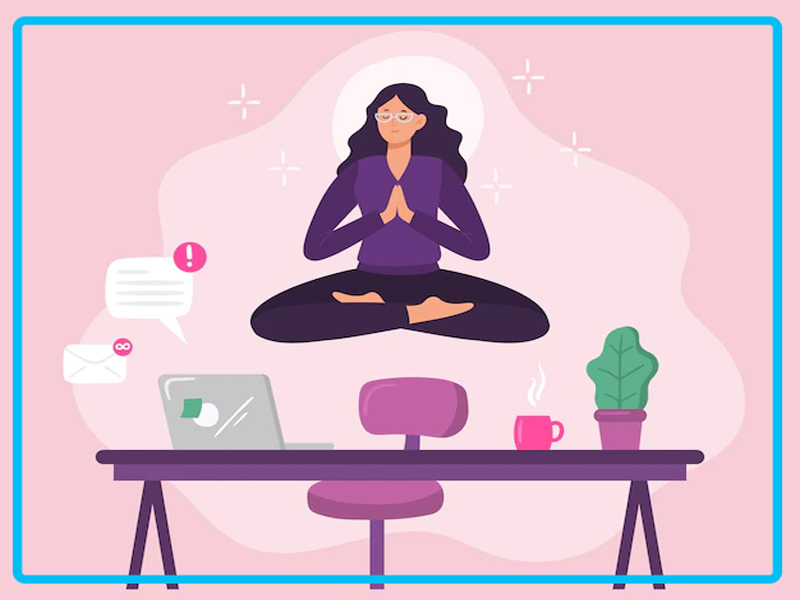Are you easily distracted, or do you keep making mistakes even when you’re trying to do your best? Do you sometimes forget your actions or words? Do you find it difficult to sit and listen to other people’s conversations? If your answer to the above questions is positive, you may have a problem of lack of concentration.
Inattention and difficulty in concentrating are signs of low concentration. The problem of lack of concentration can have consequences beyond simple forgetfulness and play a destructive role in employment, social relationships and learning new skills or information. In this article we are to
What is lack of concentration?
The problem of lack of concentration is a natural and periodic occurrence for most people. Fatigue and emotional stress can cause concentration problems in most people. Hormonal changes can also affect the way we think and focus. If the lack of concentration is repeated in an acute and continuous manner, it is a characteristic of physical and mental problems that will require the intervention of a therapist. Unfortunately, sometimes this disorder is not diagnosed correctly and others think that the person with this disorder is distracted and confused or does not care about the issues around him. These misconceptions and lack of understanding in the affected person cause feelings of frustration, anger or depression.

Signs and symptoms of lack of concentration
The inability to concentrate in people appears in different forms. Some of the symptoms of lack of concentration that a person may experience include:
- Inability to remember events that happened in the recent past
- Inability to sit still
- Inability to think clearly
- Constantly losing things or places
- Inability to make decisions
- Inability to perform complex tasks
- lack of attention
- Repeating negligent mistakes
You may find that you find it difficult to concentrate at certain times of the day or in certain environments, or others may comment that you seem distracted. Also, due to carelessness and lack of concentration, you may miss your appointments or meetings.
What are the factors and causes of lack of concentration?
Attention deficit disorder can have many psychological, physiological and environmental causes. Among the cases that can be mentioned, it includes damage to a part of the brain, severe headaches, involvement with a chronic pain, depression, high anxiety, painful memories, etc. In the following, we discuss some of the most common factors that prevent concentration:
Sleep disorders: The quality and duration of sleep is very influential in every aspect of life. Sleep disorders can cause lack of concentration and memory problems in adults and lack of attention in children. Sleep restores the body and mind, and therefore, lack of sleep does not allow the mind to function properly. Adjusting the sleep pattern can be one of the best ways to improve concentration in adults and children.
Today’s technology: Technology today can be one of the reasons for lack of concentration in adults. All the sounds that we constantly hear as external stimuli such as social media notifications, clock alarms, text messages, calls, etc. disturb our concentration. After a while, even when we are working in our calm and quiet office. We experience lack of concentration as a habit.
Hormonal changes: Hormonal changes that occur in the body cause various symptoms, the most important of which are sleep problems, confusion, fatigue, and depression, each of which ends in lack of concentration.
Stress: Our brain is designed in such a way that in times of danger, it releases adrenaline and keeps the body in a state of stress. Although, adrenaline initially creates high energy and full concentration, but its effect disappears in a short period of time and the brain releases the hormone cortisol as a result of stress. In this way, it becomes easier for a person to make the right decision, focus and reach a solution. But the constant presence of cortisol in the body disrupts the normal mechanism of the prefrontal cortex of the brain, and when this part of the brain does not work well, it will cause lack of concentration.
Chemical drugs: The chemical content of some drugs can have severe effects on the brain. The amount or frequency of drug consumption and choosing the right drug are among the things that must be carefully checked and under the supervision of a doctor.
What is the treatment for lack of concentration?
Lack of concentration in adults is an issue that starts as a small problem and as it deepens, it affects many areas of life. If preliminary steps are taken to deal with this problem, it can be prevented from progressing faster and more effectively. In the following, we introduce some simple techniques to increase concentration:
Concentration techniques
As with any mental problem, there are many ways to improve concentration in children and adults, including:
Brain Exercise: There are many ways to help your brain stay healthy regardless of your age. Doing brain exercises to increase concentration, attention and memory will help you keep your brain active as you age. Solving puzzles, tables, word games and some mental games can help you in this regard.
Finding Personal Techniques: Each person’s mental makeup and needs can be different. For example, distractions may change according to one’s interests. For this reason, people who have difficulty concentrating should clearly define their needs and find their own techniques. Use a planner and create checklists to help you organize your plans. Write a schedule for yourself and try to stick to it regularly. Divide your tasks into smaller steps and… to find these techniques, you can get help from expert advice.

Healthy diet
The nutrients we give to our body are important for the health of all our body parts. We get all the energy and materials we need from these foods. Having a healthy diet is very important for both having a healthy mind and eliminating lack of concentration in children and adults. Avoid overstimulating the brain with large amounts of caffeine or energy drinks.
enough sleep
As we said above, sleep is one of the most important factors for resting and refreshing the mind. The mind needs rest to receive and store new information. Overcoming sleep problems and regular sleep is the most effective way to eliminate lack of concentration and attention in adults and children.
Exercise
Researchers have found that adding exercise to your daily routine isn’t just good for your body. It also helps the brain to ignore disturbing thoughts. In a study, it was observed that students who do moderate exercise had much better concentration compared to others.
Prescription drugs
Medicines for concentration should be taken under the supervision of a doctor. Using medicines without knowing their possible side effects can cause many problems. Even in some cases, inappropriate dosage can lead to worsening of lack of concentration. Only drugs that are used in the right dose and for the right purpose can help improve the lack of concentration and attention in adults.


